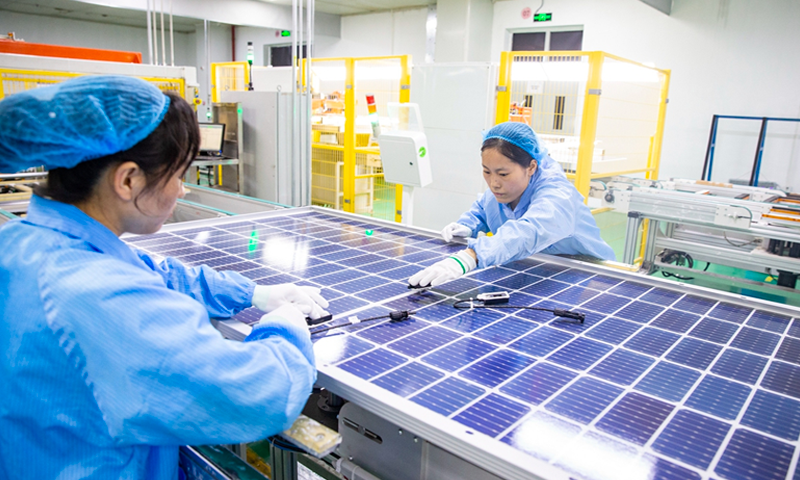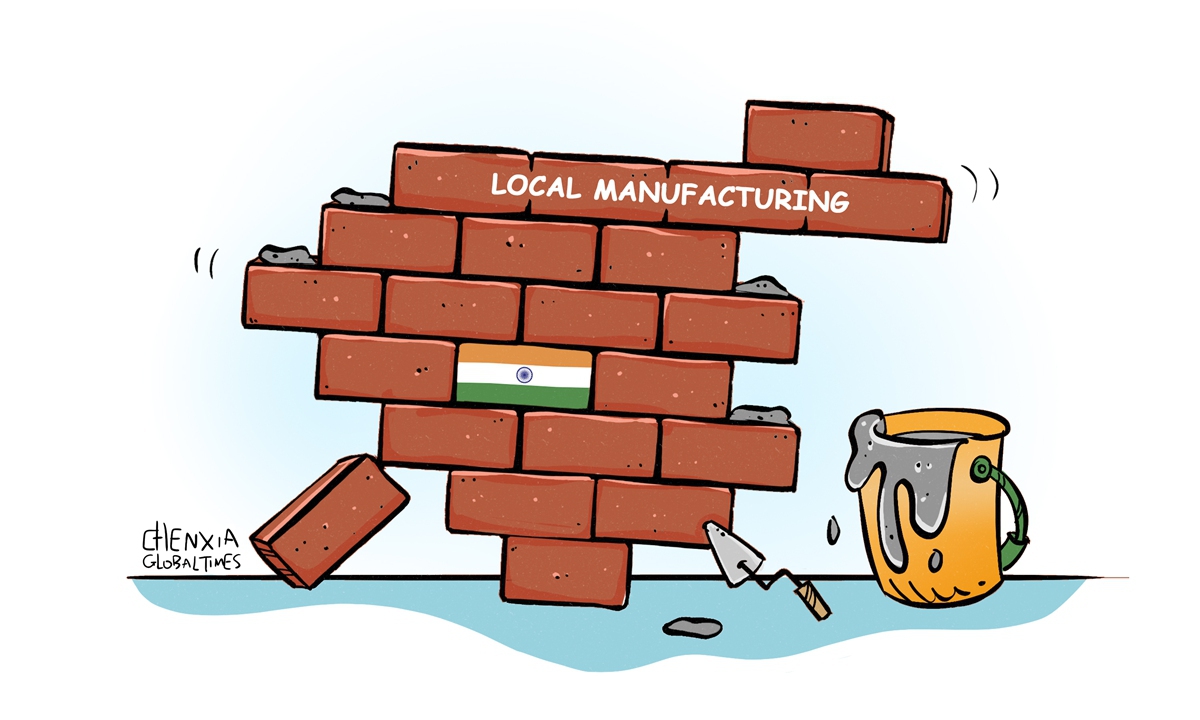
Illustration: Xia Qing/Global Times
Media reports saying Apple, Dell and Lenovo are among companies authorized by India to import laptops and other IT hardware products are not enough to soothe market anxiety. Protectionist measures and other restrictions on exports to India should be 100 percent abolished, creating an enabling environment for fair competition and free trade.Indian news agency PTI reported on Wednesday that the government has cleared about 110 of the 111 requests received for allowing imports of laptops, computers and other IT hardware products, citing an Indian official. As reported, the companies that received approvals include Apple, Dell, HP, Samsung, Lenovo and Xiaomi.
Although Chinese manufacturers such as Lenovo are on the list, it isn't enough to dispel concerns among Chinese companies, which have faced a deteriorating local business environment and tough government regulations. India's new "import management system", which came into force on Wednesday, is a strong signal that India won't abandon the idea of moving toward localized manufacturing by controlling imports.
This means Chinese exporters may become targets of India's trade protectionism at any time. It may lead to a chain reaction and deal a blow to the overall confidence of Chinese companies in investing in India.
Facing criticism from industry and Washington, after the government announced in August that a licensing requirement for importing laptops, tablets and personal computers would be imposed, India in October rolled back its plan, allowing restriction-free imports of laptops and tablets, but it also announced plans to launch a new system of "authorization" aimed at monitoring shipments of such hardware.
Western companies may become the biggest beneficiaries as India modified its initial stance of imposing physical restrictions, but Chinese companies are facing many uncertainties. For now, under the so-called import management system, IT hardware companies will be required to register and disclose data related to their imports, and countries from which they import, among other things. Some believe the new system is aimed at squeezing imports of IT hardware from China, and is a protectionist measure that is not much different from a licensing regime.
As reported by The Indian Express, China accounts for roughly 70-80 percent of India's imports of personal computers and laptops. India has seen an increase in imports of electronic goods in the past few years. During April-June this year, India's overall imports of electronic goods increased to $6.96 billion from $4.73 billion in the year-earlier period. The growth of these imports has stimulated India's trade protectionist sentiment.
Driven by rising protectionism, India seems to have hardened its crackdown on Chinese companies, ranging from smartphone manufacturers to other enterprises. India should be warned that if its "import management system" is aimed at cracking down on IT hardware imports from China, then India's manufacturing industry will lose miserably.
China is the largest manufacturing country with the most complete industry categories. Many manufacturers doing business in India, including Western companies, need to import a large amount of components and IT hardware from China as intermediate products.
Although some media outlets have been keen to exaggerate the competition between China and India in the manufacturing field, one thing is clear: India cannot replicate the complete industry chains built in China overnight. If intermediate product trade is hit, then India's manufacturing development will be affected. In the absence of critical components, some industries may even face the risk of paralysis.
From this perspective, if India's new "import management system" becomes a prelude to cracking down on imports of electronic and intermediate products from China, it will become a dangerous game for India's manufacturing industry.
China is the biggest global manufacturing hub of electronics with much of the production of laptops and computers centralized in the country. If India wants to make itself an important world laptop and computer manufacturer, the country must make itself an ideal investment destination for Chinese companies such as Lenovo. Offering a fair business environment for Chinese enterprises and rebuilding their investment confidence will be a crucial step in achieving India's manufacturing ambitions.
The author is a reporter with the Global Times. bizopinion@globaltimes.com.cn



